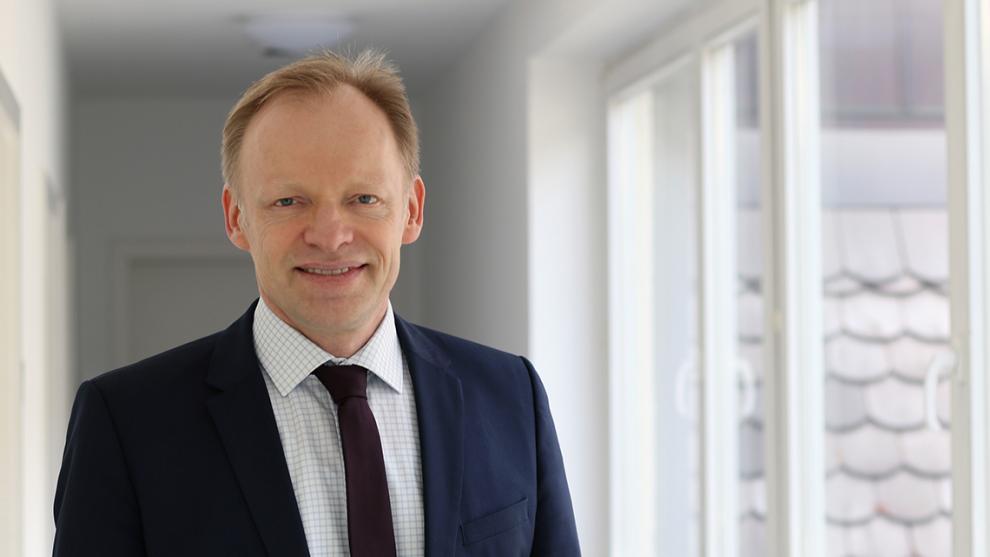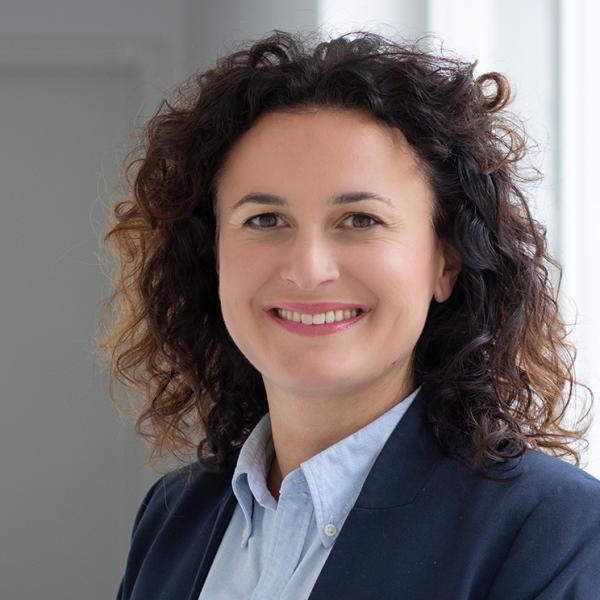ifo Media Center
The ifo Institute invites you to participate in the discussion of interesting economic topics via the Internet. In our ifo Media Center a whole series of remarkable events are available and can be viewed in full length. We also record selected speeches and presentations given by employees or at events and make them available in our Media Center.

ifo Institute: Germany and Europe Benefit from Devaluation of the Yuan
A devaluation of China’s currency during the trade war would lead to more prosperity for Germany, Europe, and the rest of the world. This is the result of a new study by the ifo Institute. Should the yuan devalue by 10 percent, Germany would gain EUR 413 million in real income; if the devaluation were 20 percent, this would go up to as much as EUR 499 million annually, according to calculations from the ifo trade model. The yuan has lost roughly 13 percent of its value against the US dollar since spring 2018.
Institut ifo : l'Allemagne et l'Europe bénéficieraient d'une dévaluation du yuan
Une dévaluation de la monnaie chinoise au cours de la guerre des tarifs douaniers favoriserait la prospérité de l'Allemagne, de l'Europe et du reste du monde, indique une étude récemment publiée par l'Institut ifo. D'après des calculs menés à partir du modèle commercial établi par l'Institut ifo, une dévaluation du yuan de 10 % ferait progresser les revenus réels de l'Allemagne de 413 millions d'euros, une dévaluation de 20 % les augmenterait même de 499 millions d'euros par an. Depuis le deuxième trimestre 2018, le yuan a perdu environ 13 % de sa valeur par rapport au dollar américain.
L'Institut ifo prône la suppression des aides publiques au profit d'Airbus et de Boeing
L'Institut ifo a appelé à l'arrêt des subventions versées à Airbus et Boeing. L'Organisation mondiale du commerce (OMC) avait déclaré illégales les subventions actuellement versées au profit d'Airbus, autorisant les États-Unis à appliquer des droits de douanes compensatoires sur un volume de marchandises d'une valeur de 7,5 milliards d'euros.
Le président de l'Institut ifo, M. Clemens Fuest, siégera au Conseil franco-allemand d'experts économiques
Le président de l'Institut ifo, M. Clemens Fuest, vient d'être nommé membre du Conseil franco-allemand d'experts économiques. Ce groupe d'experts récemment créé sera rattaché, du côté allemand, au ministère fédéral de l'Économie et de l'Énergie. Il se composera de dix experts indépendants qui auront pour fonction d'adresser aux deux gouvernements des recommandations en matière de politique économique susceptibles de favoriser le rapprochement entre les deux pays et d'améliorer la compétitivité des économies française et allemande.
ifo Institute Demands an End to Subsidies for Airbus and Boeing
The ifo Institute has demanded an end to subsidies for Airbus and Boeing. The World Trade Organization (WTO) has declared the current Airbus subsidies illegal and authorized the US to impose countervailing duties on goods worth EUR 7.5 billion.
Germany: Economy Cools Further – Industry in Recession
Germany’s leading economics research institutes have revised their economic forecast for Germany significantly downward. Whereas in the spring they still expected gross domestic product to grow by 0.8 percent in 2019, they now expect GDP growth to be only 0.5 percent.
Institut ifo : la zone euro ne connaît qu'une faible croissance économique
La croissance en zone euro restera faible jusqu'au début de l’année 2020 annoncent les trois instituts de recherche économique ifo, KOF et Istat, basés respectivement à Munich, Zurich et Rome. Au troisième trimestre 2019, la zone euro n’a en effet enregistré qu’un taux de croissance de 0,2 %, lequel atteindra seulement 0,3 % au cours de chacun des deux prochains trimestres, alors qu’il avait été encore de 0,4 % pendant le premier trimestre de l’année en cours.
ifo President Fuest Appointed to Franco-German Council of Economic Experts
ifo President Clemens Fuest has been named to the newly convened Franco-German Council of Economic Experts at the German Federal Ministry for Economic Affairs and Energy. The council consists of ten independent experts and will advise the French and German governments on matters of economic policy, with the goal of bringing the two countries closer together and improving the competitiveness of their respective economies.
ifo Institute: Only Weak Economic Growth in the Euro Area
Growth in the euro area will be weak until the beginning of 2020, according to three research institutes: ifo in Munich, KOF in Zurich, and Istat in Rome. They expect growth to be only 0.2 percent in the third quarter and to reach just 0.3 percent in each of the two following quarters. This is down from 0.4 percent in the first quarter of 2019.
ifo Business Climate Eastern Germany Rises Once More (September 2019)
In September, the mood among eastern German company managers brightened once again. The ifo Business Climate Index for the entire regional economy rose slightly from 99.6 to 100.2 points. The businesses surveyed raised both their assessments of the current situation and their business expectations somewhat compared to the previous month. The Business Climate Index for eastern Germany thus rose again for the first time in five months.
ifo Employment Barometer Rises (September 2019)
Human resources departments at German companies are now posting more new jobs. The ifo Employment Barometer rose to 98.9 points in September after measuring 98.1 points in August. However, the dynamism of the labor market remains weak.
ifo Institute: Industrial German Länder Are Suffering
Export-dependent German federal states with a strong industrial base are being hit particularly hard by the current downturn, according to figures from the ifo Institute. While the service metropolises of Berlin and Hamburg were able to expand their economic output by 1.9 and 1.6 percent respectively in the first half of 2019, the economy shrank by 0.9 percent in Rhineland-Palatinate and by 0.4 percent both in Bremen and in Saarland. Baden-Württemberg stagnated at 0.0 percent.
Institut ifo : augmentation de l'activité partielle dans l'industrie allemande
L'industrie allemande a de plus en plus recours à l'activité partielle. C'est ce qui ressort de la toute dernière enquête de l'Institut ifo. Si 3,8 % seulement des entreprises du secteur manufacturier étaient passées à l'activité partielle au mois de juin 2019, c'est le cas de 5,8 % des entreprises en ce mois de septembre, indique cette enquête. Et elles sont même 12,4 % à envisager de le faire au cours des trois prochains mois, contre 8,5 % seulement au mois de juin dernier.
ifo Institute: More Short-Time Work in German Industry
Short-time work is on the increase in German industry. This is the result of the latest survey conducted by the ifo Institute. The survey found that 5.5 percent of companies in the manufacturing sector have already introduced short-time work, compared with only 3.8 percent in June. As many as 12.4 percent expect to introduce short-time work in the next three months; the corresponding figure in June had been only 8.5 percent.
ifo Export Expectations Fell (September 2019)
Sentiment among German exporters has become noticeably gloomier. The ifo Export Expectations in manufacturing fell to −5.2 balance points in September, down from −2.3 balance points in August. August’s slight recovery was only short-lived. The possibility of a hard Brexit is already casting shadows. At the moment, there are hardly any positive signals from the global economy for German exporters.
ifo Business Climate Recovers Slightly (September 2019)
Sentiment among German executives has improved slightly. The ifo Business Climate Index rose in September from 94.3 to 94.6 points. This increase was due to a better assessment of the current situation. However, the outlook for the coming months deteriorated again. The downturn is taking a breather.
ifo Institute Sees Pros and Cons in Climate Package
Germany’s “climate cabinet” presented a climate package in Berlin today, in which the ifo Institute sees a mix of pros and cons. Pricing CO₂ via certificates is the right way to go. However, setting firm CO₂ prices until 2025 is incompatible with a functioning certificate system; in any case, the prices are too low. Moreover, the package is bogged down in individual supplementary measures of uncertain impact.
ifo Institute: New Proposal for CO₂ Pricing Could Ensure More Effective Achievement of Climate Targets
In the run-up to the decision by Germany’s “climate cabinet”, the ifo Institute proposes a new concept for CO₂ pricing. The proposal, entitled Flexcap, finds the middle ground between a CO₂ tax and an emissions trading system. “It combines the advantages of a CO₂ tax and an emissions trading system, but represents a more effective solution than either instrument on its own,” explains Karen Pittel, Director of the ifo Center for Energy, Climate, and Resources.
ifo Institute: Recession on the Horizon for Germany
The ifo Institute has lowered its forecast for economic growth in Germany this year and next. Instead of 0.6 percent, researchers now expect only 0.5 percent growth for 2019. “The German economy is at risk of falling into recession. Like an oil slick, the weakness in industry is gradually spreading to other sectors of the economy, such as logistics, one of the service providers,” says Timo Wollmershaeuser, Head of Forecasts at ifo. “This outlook is associated with high uncertainties. For example, we are assuming that there will be no hard Brexit or escalation of the US trade war.”
Institut ifo : Risque accru de récession en Allemagne
L'Institut ifo vient de corriger à la baisse ses prévisions de croissance en Allemagne pour l'année en cours ainsi que l'année prochaine. Au lieu de 0,6 %, les chercheurs tablent désormais pour 2019 sur une croissance de seulement 0,5 %. « L'économie allemande est menacée d'une récession. La faiblesse du secteur industriel fait tache d'huile et affecte progressivement les autres filières économiques, comme la logistique, qui fait partie du secteur des services », constate Timo Wollmershaeuser, directeur des études conjoncturelles au sein de l'Institut ifo. « Nos prévisions sont tributaires de toute une série d'impondérables. C'est ainsi que nous avons exclu l'éventualité d'un Brexit sans accord ou d'une escalade de la guerre commerciale des États-Unis. »




